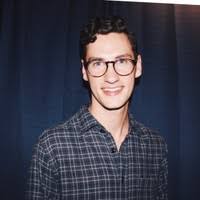A Conversation with NLC Menino Fellow, Adam Bieda

Adam Bieda is a graduating senior pursuing a double major in English and Economics. Currently a NLC Menino Fellow, Adam shares his fellowship experience with the National League of Cities’ Institute for Youth, Education and Families.
Through this Fellowship, Adam spent the fall semester paired with a faculty member in an on-campus Directed Study program and is currently spending the 2019 spring semester in Boston University’s Washington DC study abroad program. From directed research projects to meeting with mayors on the Hill, learn more about Adam’s current fellowship experience and why he applied to this opportunity.